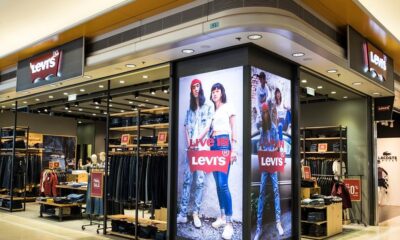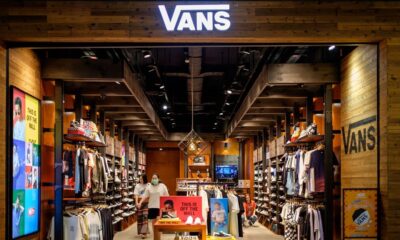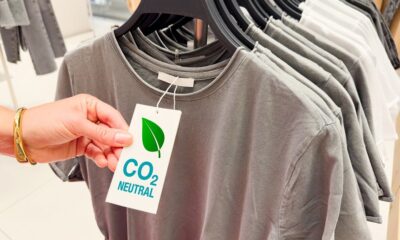Fashion
UK retailer ASOS & ITF sign deal to protect transport workers’ rights
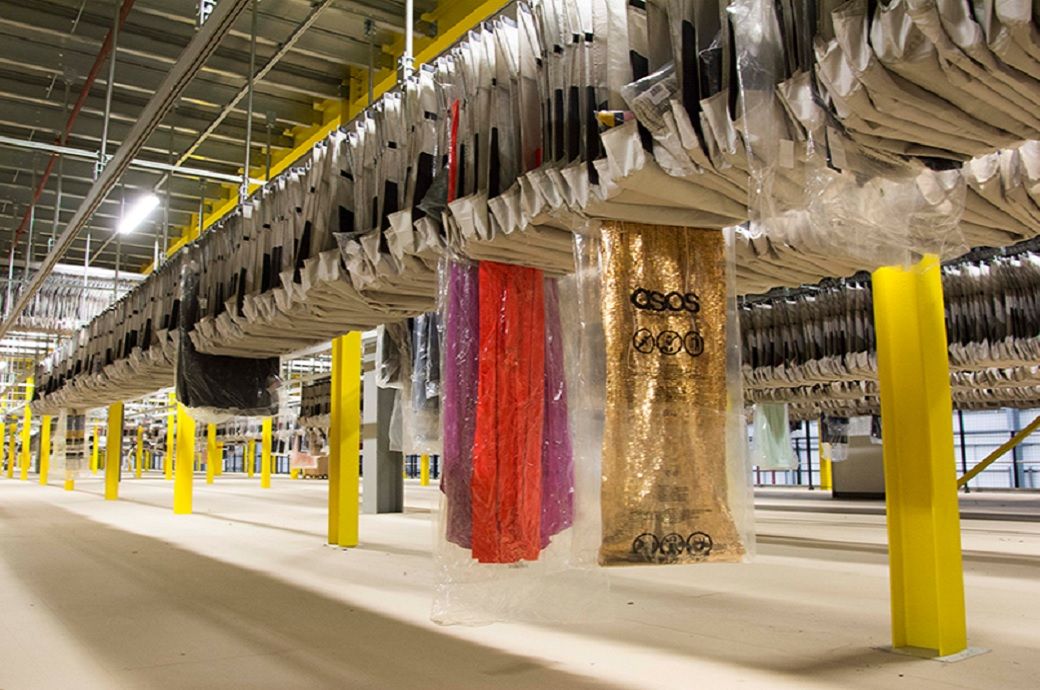
The partnership builds on ASOS’ long-standing leadership in embedding human rights across its business and supply chains, extending this commitment into transport and logistics.
Under a legally-binding human rights due diligence (HRDD) agreement, ASOS and the ITF will cooperate in conducting HRDD in ASOS’ transport operations and logistics, ensuring respect for human rights and sustainability throughout ASOS’ supply chains. ITF will support ASOS in its HRDD policy design, the identification, avoidance and mitigation of risk, and the determination of remedies if rights are violated.
ASOS has signed a legally-binding human rights due diligence (HRDD) agreement with the International Transport Workers’ Federation (ITF) to protect transport workers and strengthen supply chain sustainability.
The pact includes monitoring, remediation, gender equality, and climate action, extending ASOS’ human rights focus into logistics while setting new benchmarks for GNFR supply chain standards.
ASOS and ITF will also engage with ASOS’ brand partners to share resources and educational tools on HRDD relating to transport and logistics.
ITF General Secretary, Stephen Cotton, said: “ASOS has been leading the charge from businesses that demand better protection for people and planet through human rights due diligence. So, we’re delighted to team up with ASOS in order to raise the bar globally for the transport workers who keep our world moving.
“Agreements like this are helping the ITF to shift the dial on the protection of transport workers’ rights. But we can only do this in tandem with pioneering, progressive businesses like ASOS, who are ready to push far beyond the minimum of what’s legally required of them.”
ASOS and the ITF will also work together on climate change and gender equality – key issues affecting transport and logistics workers in both directly operated and subcontracted transport operations in ASOS’ global supply chain.
ASOS Chief Executive Officer, José Antonio Ramos Calamonte, said: “Enhancing the human rights of everyone involved in our value chain – from designing and making clothes, to warehousing, shipping and delivery – has been a core mission for ASOS for close to a decade. Our new agreement with ITF will enable us to take our work even further and extend our action to protecting and improving the human rights of workers in our transport and logistics supply chain, reducing risk and improving supply chain resilience while delivering positive change for the people supporting our business.”
Under the agreement, the following key elements will form the basis of the conduct of HRDD in ASOS’ transport operations and logistics:
- Meeting or exceeding the policies and practises outlined in the ITF Supply Chain Human Rights Principles and the ITF’s Eight Principles for Decent Work in Warehousing, Distribution and Logistics
- A monitoring and compliance mechanism based on worker-centred HRDD approaches, including the ITF’s HRDD Guidance
- Providing for or cooperating in remediation for rights violations, including when appropriate through collective bargaining with the ITF and/or its affiliated trade union members
- Creating an enabling environment for mature industrial relations in ASOS’ own operations and supply chains; where possible, granting the ITF and its affiliates access to transport and logistics suppliers and workplaces within ASOS’ supply chains
In addition, ASOS will consider the ITF as a ‘stakeholder’ for any relevant legislation, as regards the human rights of transport and logistics workers in ASOS’ directly operated and subcontracted supply chain transport operations. ASOS also commits, where possible, to join the ITF in its national and international advocacy for high standards in transport supply chains.
“There’s no doubt that ASOS is leading the way in ensuring rights are protected in the ‘goods not for resale’ (GNFR) part of its supply chain,” added Cotton. “Many businesses are far too slow at prioritising GNFR and what it can mean for protecting millions of workers worldwide from rights abuses. But when a retailer like ASOS takes a lead on this, it sends a clear message for other business to step up to the plate.”
Note: The headline, insights, and image of this press release may have been refined by the Fibre2Fashion staff; the rest of the content remains unchanged.
Fibre2Fashion News Desk (RM)
Fashion
Intertextile Shanghai 2026 to debut pet boutique zone
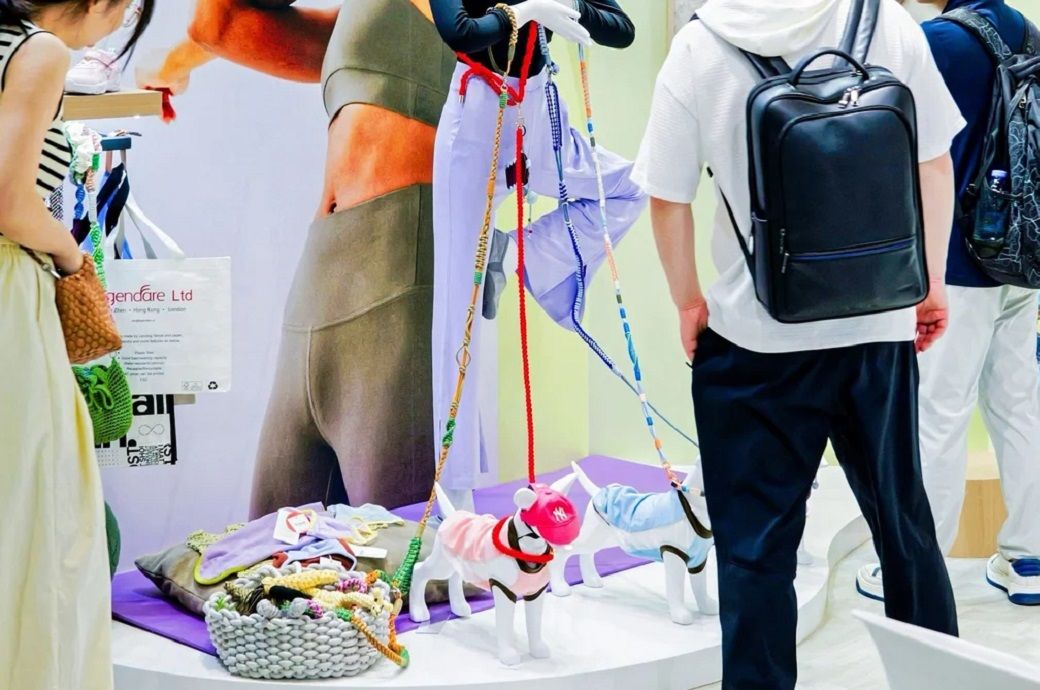
China’s pet economy is booming, especially amongst younger generations, and pet apparel – from designer outfits to functional garments – was a RMB 3.5 billion (over USD 500 million) market in 2024, growing more than 20% annually.To help exhibitors harness this trend, Intertextile Shanghai Apparel Fabrics – Spring Edition 2026 will launch the Pet Boutique, presenting a range of innovative, sustainable materials that prioritise both functionality and comfort for pets. The display area will be adjacent to a larger, restructured Functional Lab, with both that zone and Econogy Hub showcasing textiles that tie ‘eco’ with technical performance, a strong focus in the global market. This spring, over 3,000 exhibitors will unveil the season’s innovations across 190,000 sqm at the National Exhibition and Convention Center in Shanghai.
Intertextile Shanghai Apparel Fabrics – Spring 2026 will introduce a Pet Boutique zone tapping China’s fast-growing pet apparel market, alongside an expanded Functional Lab and larger Econogy Hub highlighting sustainable, performance textiles.
Over 3,000 exhibitors will showcase innovations from March 11–13 at Shanghai’s National Exhibition and Convention Center.
In China, pet ownership is on the rise, as is annual spending per pet, with both factors leading to astronomical growth and a pet market that could be worth RMB 1.15 trillion (over USD 164 billion) by 2028. As such, Intertextile Apparel is set to launch the Pet Boutique display area at its upcoming edition from 11 – 13 March, allowing textile suppliers to feature a range of pet-ready fabrics, accessories and apparel for buyers to explore. Exhibitors with samples on show include Lenzing, showing how renewable wood-based fibres can be used for pet products; Idole, using SOLOTEX to create textiles that blend fashion and function; as well as SilkIPEK Tekstil; Heng Li String and Braid; G.K Infinite; and more.
Younger generations born in the 1990s and 2000s are influencing market trends towards premium pet products, while functional garments, such as those with odour control and cold and wet weather protection, make up more than 60% of China’s pet apparel market – hence the display area’s focus on superior, performance-related exhibitors and its positioning beside Functional Lab.
Functional Lab reimagined in 2026
The product zone will expand in scale by over 30% compared to the previous Spring Edition, reflecting Chinese consumers’ increasing participation in outdoor activities ranging from dog walking to trail running. Within the zone, THE CUBE will feature a new product presentation and display area – mirroring the integrated layout that has proven so effective at Econogy Hub. Key exhibitors who have confirmed their participation at the new-look Functional Lab include:
- 3M China: 3M will draw special attention to its Thinsulate Insulation, encompassing extremely fine microfibres with a high warmth-to-thickness ratio that enables garment design with less bulk and enhanced freedom of movement.
- Hyosung: among other offerings, the world’s largest manufacturer of spandex will feature various CREORA materials, with diverse applications spanning warming, cooling, weight and colour.
Other highlighted exhibitors within the zone include knitted fabric specialists such as Regen-tech Fashion (eco-functional), Henglun Textile (denim), and HiLite Textile (fashion and casualwear).
Innovation front and centre at Econogy Hub
Ideal for humans and their furry companions, sustainable textiles are increasingly being integrated with functional properties like UV resistance, insulation and antibacterial performance. At the fair, Econogy Hub – which has also grown in scale – will give a vital platform to industry players showcasing eco-friendly textiles covering both fashion and function, as well as certification and traceability solutions. Featured exhibitors include:
- Ecocert (Pavilion): the certifier strives to enable production processes that respect the environment, quality and safety, and the Ecocert Pavilion will gather its downstream textile partners showcasing knitted fabrics, cashmere, and more.
- PEELSPHERE: the company converts non-food agricultural waste into 100% bio-based plant fibre leather that combines performance with fashionable aesthetics, as well as providing sustainable fashion service solutions.
- TextileGenesis, a Lectra company: provides a one stop traceability and market compliance solution for the apparel ecosystem, custom-built for premium and sustainable textiles such as wood-based fibres, premium cotton, specialty filaments, silk, wool and cashmere.
Buyers with ‘green’ sourcing requirements can filter eco-focused exhibitors through the Econogy Finder, a directory that draws attention to companies across the fairground whose sustainability has been further verified through the independent Econogy Check. In the apparel textile industry, numerous suppliers are treating sustainable materials as a non-negotiable element. Several will feature as prominent exhibitors at the upcoming fair and on its Econogy Finder, including notable cellulosic fibre producers Asahi Kasei, Eastman, and Grasim Industries, as well as eco-denim suppliers Burlington and Diamond Fabrics, both of which will be showcasing in Econogy Hub for the first time.
For fashion brands and other industry players, the ability to verify sustainability is crucial. When exhibiting at the previous Spring Edition, Ms Sun Rui, Sales Account Manager of Beijing Ecocert Certification Center Co Ltd, said: “Ecocert played a pivotal role at Econogy Hub, where we have gathered our partners to showcase their collections, presented our own certification solutions, and shared our vision for sustainability at Econogy Talks. This has enabled more buyers to recognise that a French certification body is actively advancing sustainability initiatives in China. We connected with apparel brands, garment manufacturers, yarn and fabric suppliers, and others. The zone’s focused display and seminar format provided an exceptional platform for industry exchange, helping both us and our clients better understand policies and development trends.”
The fair is co-organised by Messe Frankfurt (HK) Ltd; the Sub-Council of Textile Industry, CCPIT; and the China Textile Information Centre. It will take place alongside Yarn Expo Spring, Intertextile Shanghai Home Textiles – Spring Edition, CHIC and PH Value at the National Exhibition and Convention Center (Shanghai).
Intertextile Shanghai Apparel Fabrics – Spring Edition will be held from 11 – 13 March 2026.
Other upcoming shows:
Vietnam International Trade Fair for Apparel, Textiles and Textile Technologies
26 – 28 February 2026, Ho Chi Minh City
Intertextile Shenzhen Apparel Fabrics / Yarn Expo Shenzhen
9 – 11 June 2026, Shenzhen (Futian)
Intertextile Shanghai Apparel Fabrics – Autumn Edition / Yarn Expo Autumn
25 – 27 August 2026, Shanghai
Note: The headline, insights, and image of this press release may have been refined by the Fibre2Fashion staff; the rest of the content remains unchanged.
Fibre2Fashion News Desk (HU)
Fashion
Indian textile players hail Budget’s ESG & circularity thrust
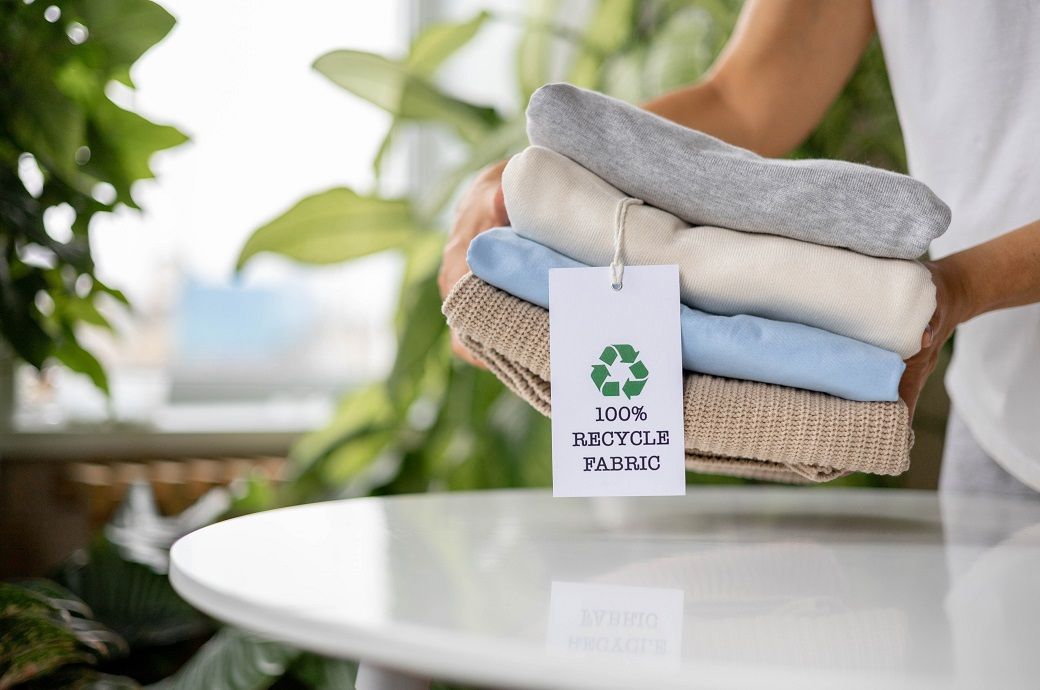
Industry stakeholders said the Budget signals a transition away from volume-driven growth towards a value-led, low-carbon and traceable textile ecosystem, supported by initiatives such as the Text-ECO initiative, the National Fibre Scheme, Samarth 2.0, and sustainability-linked capacity building.
Indian textile industry has welcomed the Budget for its strong focus on sustainability, circularity and responsible manufacturing.
Industry leaders said the measures signal a shift towards value-led, low-carbon and traceable growth.
Initiatives such as Text-ECO, Samarth 2.0 and the National Fibre Scheme are seen as strengthening competitiveness, skills and sustainable sourcing across the value chain.
Shruti Singh, Country Director–India at Canopy Planet, said, “This Budget creates enabling conditions for India to lead in manufacturing of low carbon textile fibres and paper packaging. Investing in circular material ecosystems can meet business ESG goals, create domestic fibre security and global export competitiveness,” she said. Singh added that as demand grows across textiles, packaging and paper-based applications, the real test will lie in responsible sourcing. “For companies linked to forest-based supply chains, this is a moment to strengthen traceability, reduce deforestation risk, and move sustainability from intent to execution,” she noted.
From a fashion brand perspective, Amar Nagaram, co-founder of Virgio, said the Budget clearly links sustainability with innovation and design-led growth. “India’s next phase of growth will be driven by the convergence of design, technology and sustainability. The emphasis on sustainable textiles, MSME scale-up, AI-led innovation and design education reflects a long-term vision to move Indian manufacturing up the global value chain,” he said. Nagaram added that the policy direction supports responsible production, data-driven decision-making, and positions India as a credible global hub for future-ready fashion and lifestyle businesses.
At the manufacturing end, Sabhari Girish, chief sustainability officer at Sulochana Cotton Spinning Mills, Tiruppur, said that sustainability and circularity receiving prominence in the Budget is encouraging for the sector. “Circularity and sustainability taking a prominent spot in the Budget speech is a positive signal. The announcement of Text-ECON will help Indian textile companies showcase their environmentally friendly contributions to the world,” he said. Girish noted that upcoming FTAs with the UK and EU are expected to sharpen the focus on sustainability, adding that Samarth 2.0 will play a critical role in skilling the workforce with updated technologies across the value chain, from fibre to garments.
He also pointed out that the National Fibre Scheme could enhance the quality and global competitiveness of Indian-made fibres, though capital-intensive modernisation will require a clear funding roadmap. “Adopting best practices needs more support, and a proper roadmap will help indigenous fibres take centre stage,” Girish said, while welcoming the proposal to upgrade sports goods manufacturing as a boost for R&D and technical textiles.
Industry experts said the Budget’s sustainability-led approach aligns closely with stricter environmental regulations in markets such as the EU and UK, and could strengthen India’s positioning as a responsible, compliant and future-ready sourcing destination.
Fibre2Fashion News Desk (KUL)
Fashion
US inks reciprocal trade agreement with Guatemala
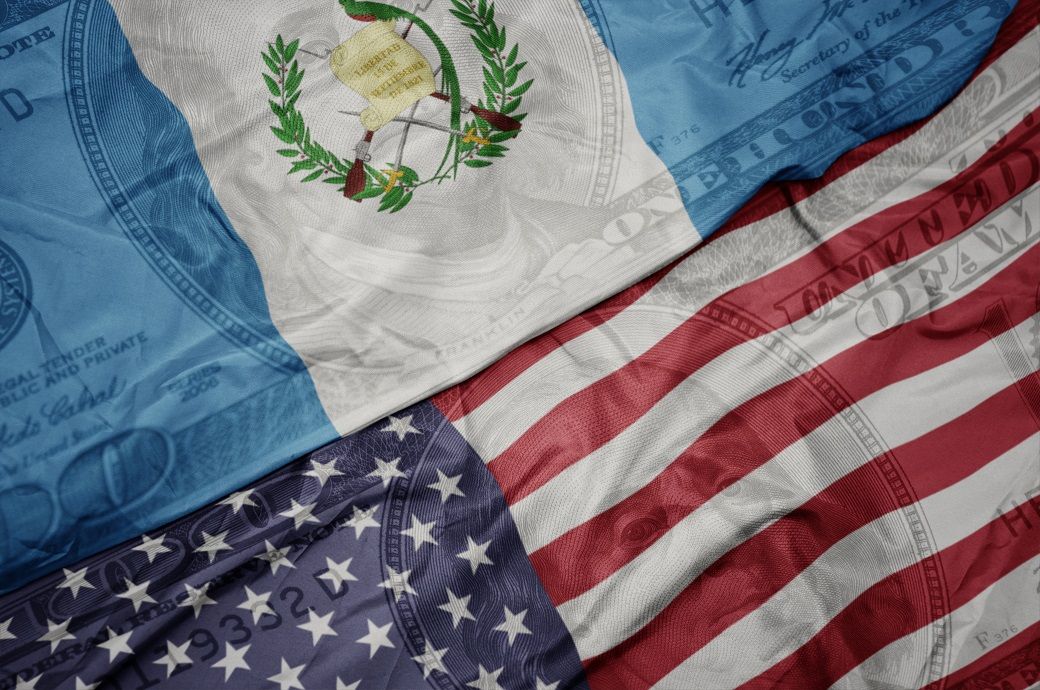
“President Trump’s leadership is forging a new direction for trade that promotes partnership and prosperity in Latin America, further strengthening the American economy, supporting American workers, and protecting our national security interests,” said Ambassador Greer in a USTR release.
USTR Jamieson Greer and Guatemala’s Minister of Economy Adriana Gabriela Garcia recently signed the US-Guatemala Agreement on Reciprocal Trade.
The agreement addresses trade barriers facing American workers and producers, expands and solidifies markets for US exports and strengthens strategic economic ties in the Western Hemisphere, Greer said.
US trade body NCTO welcomed the signing.
The agreement addresses trade barriers facing American workers and producers, expands and solidifies markets for US exports and strengthens strategic economic ties in the Western Hemisphere, he said.
“This agreement builds on our long-standing trade relationship and shared interest in reinforcing regional supply chains,” he added.
The key terms of the agreement includes breaking down non-tariff barriers for US industrial and exports, advancing trade facilitation and sound regulatory practices; protecting and enforcing intellectual property; preventing barriers for digital trade; improving labour standards; strengthening environmental protection; strengthening economic security alignment; and confronting state-owned enterprises and subsidies.
Guatemala has committed to take steps to restrict access to central level procurement covered by its free trade agreement commitments for suppliers from non-free trade agreement partners, permitting exemptions as necessary, in a manner comparable to US procurement restrictions.
Welcoming the announcement, National Council of Textile Organizations (NCTO) president and chief executive officer Kim Glas said the agreement marks an important step toward strengthening the US textile supply chain.
“Guatemala is a key partner in the CAFTA-DR [Dominican Republic-Central America-United States Free Trade Agreement] region, with nearly $2 billion in two-way textile and apparel trade. Together, the region operates as an integrated co-production platform that is essential to the US textile supply chain,” he noted.
The US-Western Hemisphere textile and apparel supply chain remains ‘a critical strategic alternative’ to China and other Asian producers, he added.
Fibre2Fashion (DS)
-

 Sports7 days ago
Sports7 days agoPSL 11: Local players’ category renewals unveiled ahead of auction
-

 Entertainment6 days ago
Entertainment6 days agoClaire Danes reveals how she reacted to pregnancy at 44
-

 Business7 days ago
Business7 days agoBanking services disrupted as bank employees go on nationwide strike demanding five-day work week
-

 Sports6 days ago
Sports6 days agoCollege football’s top 100 games of the 2025 season
-

 Fashion1 week ago
Fashion1 week agoSpain’s apparel imports up 7.10% in Jan-Oct as sourcing realigns
-

 Sports6 days ago
Sports6 days agoTammy Abraham joins Aston Villa 1 day after Besiktas transfer
-

 Politics6 days ago
Politics6 days agoTrump vows to ‘de-escalate’ after Minneapolis shootings
-

 Entertainment6 days ago
Entertainment6 days agoK-Pop star Rosé to appear in special podcast before Grammy’s


